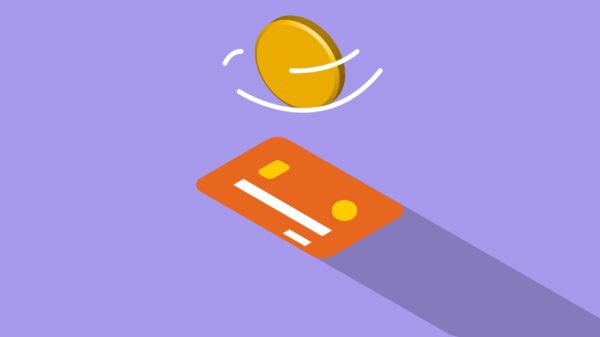Are you tired of being weighed down by student loan debt? Are you looking for effective strategies to finally pay off your loans and enjoy financial freedom? Look no further! In this blog post, we’ll explore some tried-and-true methods for paying off those pesky student loans. From setting realistic goals to exploring alternative repayment options, we’ve got everything you need to make a plan that works for you. So grab a cup of coffee and get ready to take control of your finances – it’s time to say goodbye to student loan debt once and for all!
Introduction to Student Loans
Student loans can feel like a heavy burden, but there are strategies you can use to make paying them off more manageable. Here are a few things to keep in mind:
1. Know Your Loans
Before you can develop a plan to pay off your student loans, it’s important to understand the specifics of your debt. What is the interest rate? Are there any fees? What is the repayment term? Knowing the answers to these questions will help you tailor your approach.
2. Create a Budget
Once you know how much you need to repay each month, you can start creating a budget. Make sure to include other necessary expenses like rent, food, and transportation costs. If possible, try to put extra money towards your loans every month so you can get ahead on payments.
3. Consider Refinancing
If you have private loans with high-interest rates, refinancing could be a good option for you. By refinancing, you could get a lower interest rate and save money over time. Just be sure to compare different offers and choose a reputable lender before moving forward.
4. Stay Motivated
Paying off student loans can be daunting, but it’s important to stay motivated throughout the process. Remember why you’re doing this – to gain financial freedom! – and keep your eye on the prize. Every payment brings you one step closer to being debt-free.
Understanding Your Student Loan Balance
If you’re like most student loan borrowers, you probably have multiple loans with different balance amounts. Your total student loan balance is the combined amount of all your outstanding loans.
To get a clear picture of your overall student loan debt, it’s helpful to understand the types of loans you have and how much each one is for. Federal student loans are either Direct Subsidized Loans or Direct Unsubsidized Loans. Direct Subsidized Loans are need-based, meaning your financial aid office has determined that you demonstrate financial need according to federal regulations. Your school must also certify that the loan is essential for your enrollment. The government pays the interest on these loans while you’re in school at least half-time, during your grace period, and during any deferment periods.
Direct Unsubsidized Loans are not based on financial need; anyone can receive this type of loan. You’re responsible for paying the interest on these loans from the time they’re disbursed until they’re paid in full, including during any deferment or forbearance periods.
If you have both subsidized and unsubsidized federal student loans, your total balance will include both types of debt. In addition to federal student loans, you may also have private student loans from a bank, credit union, state agency, or school. These loans typically have higher interest rates than federal student loans and may not offer as many repayment options or protections.
Your total student loan balance will be
Tips for Paying Off Student Loans
Assuming you have federal student loans, there are a few things you can do to get started on the right foot:
1. Understand your repayment options. There are several repayment plans available, and you want to make sure you choose the one that best suits your needs. For example, if you plan on working in a public service job after graduation, you may be eligible for loan forgiveness after 10 years.
2. Stay on top of your payments. Once you start making payments, it’s important to stay current. If you fall behind, it will take longer to pay off your loans and your credit score will suffer.
3. Consider consolidation or refinancing. If you have multiple student loans, consolidating them into one loan can simplify your life and save you money on interest charges. You may also be able to refinance your loans at a lower interest rate, which can also save you money over time.
4. Make extra payments when possible. Every little bit helps, so if you can swing it, make an extra payment or two each year. This will help reduce the overall amount of interest you have to pay and shorten the length of time it takes to pay off your loan completely.
Refinancing Your Loans
If you’re struggling to make your student loan payments, you may be considering refinancing your loans. Refinancing can be a great way to lower your monthly payments and pay off your debt faster. However, it’s important to understand the pros and cons of refinancing before you make a decision.
Here are some things to consider if you’re thinking about refinancing your student loans:
– Are you eligible for a lower interest rate? If so, how much could you save by refinancing?
– What are the fees associated with refinancing? How much will it cost you in the long run?
– How long will it take you to pay off your debt if you refinance? Will you be able to save any money in the long run?
– What are the terms of the new loan? Is it a fixed-rate or variable-rate loan? What is the repayment term?
Weighing these factors can help you decide if refinancing is right for you. If you have any questions about the process, we recommend speaking with a financial advisor.
Budgeting and Saving Strategies to Help You Pay Off Your Loan Quicker
If you’re looking to pay off your student loans as quickly as possible, there are a few budgeting and saving strategies that can help you make headway. First, take a close look at your budget and see where you can cut back on expenses in order to free up more money to put towards your loan payments. You may also want to consider increasing your income by picking up some extra work or side hustles.
Once you have some extra money to work with, it’s important to focus on making larger payments on the loans with the highest interest rates first. This will save you money in the long run by minimizing the amount of interest you accrue over time. Additionally, try to make payments more frequently than just once a month if possible – even making biweekly or weekly payments can help you get ahead.
Remember to stay disciplined with your repayment plan – even when it feels like you’re making little progress, every payment you make brings you closer to being debt-free. Stay focused on your goal and be patient – with these strategies, you’ll be able to pay off your student loans in no time!
Tax Breaks That Can Help Lower the Cost of Repayment
The cost of repaying student loans can be a burden for many graduates. However, there are several tax breaks that can help ease the financial strain. The Student Loan Interest Deduction allows taxpayers to deduct up to $2,500 in student loan interest on their federal income taxes. Additionally, many states offer their own deduction or credit for student loan interest paid. Check with your state’s tax agency to see if you qualify. Employers may also offer assistance with student loan repayment as part of their employee benefits package. Be sure to ask about this when you are negotiating your salary and benefits package. Remember that you can always make extra payments on your student loans to reduce the overall cost of repayment. Even small amounts can add up over time and help save you money in the long run.
Other Ways to Reduce the Cost of Repayment
There are a number of strategies that can be employed to reduce the cost of repaying student loans. One option is to refinance the loan at a lower interest rate. This can save money over the life of the loan, and may also lower monthly payments. Another strategy is to make extra payments on the loan. This will reduce the overall amount owed, and may help to pay off the loan more quickly. Students can consider consolidating their loans into one larger loan. This can often lead to a lower monthly payment, and may also offer other benefits such as a longer repayment period.
Conclusion
Paying off student loans can seem like an overwhelming task. There are, however, strategies and resources available to make the repayment process easier. By setting short-term goals, utilizing loan forgiveness programs, and considering consolidating or refinancing loans if possible, borrowers can reduce their overall loan balance in an efficient manner. With dedication and effort, it is possible to pay off your student loans faster than expected.










